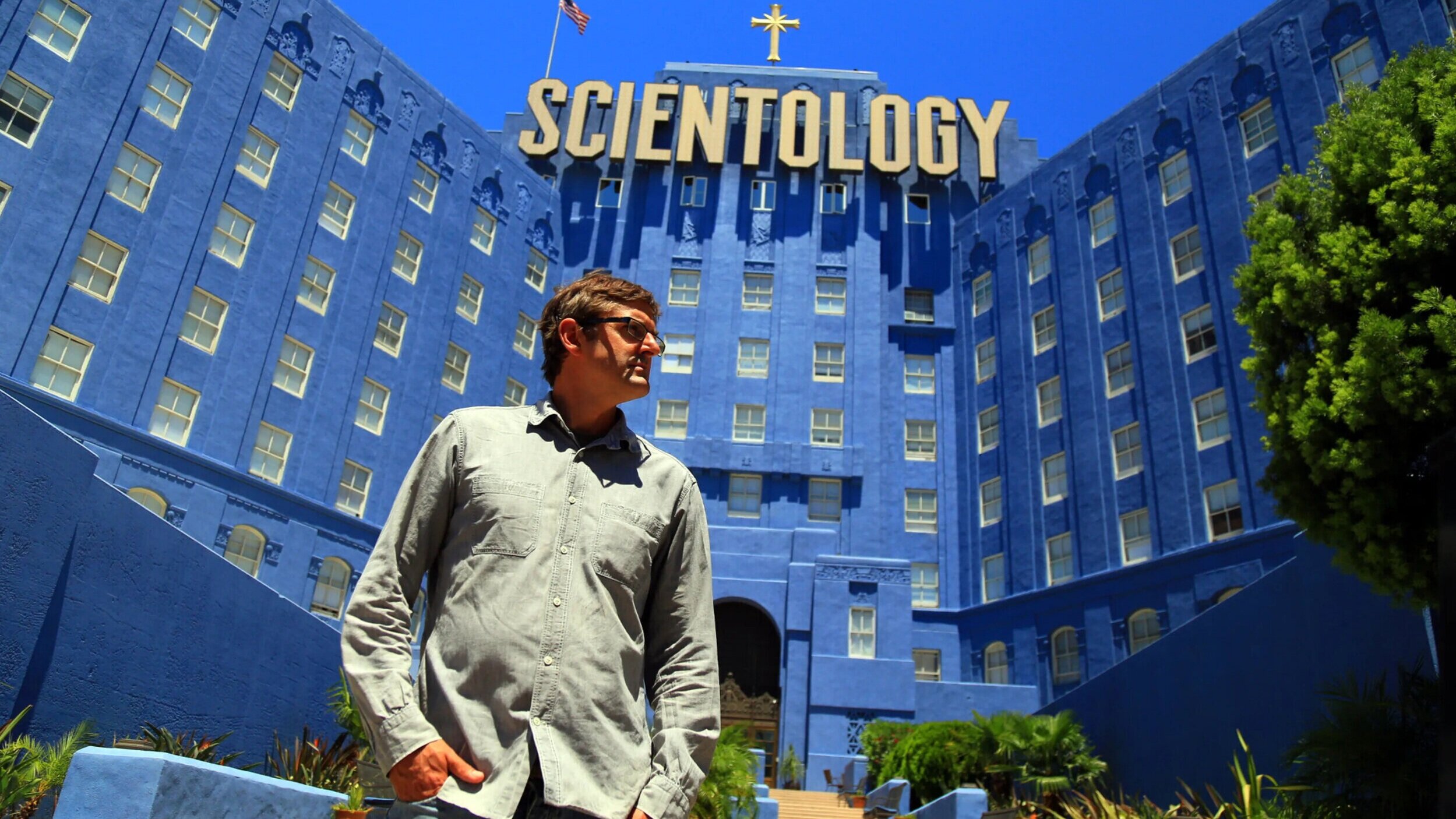My Scientology Movie
A typical Louis Theroux documentary, but this time made for the cinema.
Louis Theroux is a well-established creator of documentaries for television who, turning to cinema for this feature-length work directed by John Dower with whom he shares the writing credit, nevertheless retains his characteristic style. In addition to his substantial voice overs, he appears on screen, acts as an interviewer and from time to time addresses the camera direct. Such a step from TV to cinema work is not uncommon, but it is strange that for his subject Theroux should have chosen to make a piece about the controversial Church of Scientology.
I describe it as a strange decision because as recently as 2015 the experienced cinema documentarist Alex Gibney tackled the same subject in one of his best films, Going Clear. Neither filmmaker could get Scientology's most famous member, Tom Cruise, to appear and, with the Church predictably refusing access to Theroux, this new film like its predecessor relies largely on testimony by former members of the Church. They talk of their experiences and of their disillusionment referring in the process to bullying, abuse and harassment, all of which (as each film dutifully points out) the Church denies as it chooses to paint the complaining ex-members as liars.
Despite the common material, the two films are very different in character. Theroux is very much screen centre with the camera following him around. This becomes telling when representatives of the Church try to keep him at bay and their attempts to deter him tell their own story. However, too much time is taken up with shots of Theroux on the road and with substantial footage devoted to actors being auditioned to play Cruise and the Church's leading light David Miscavige in re-enactments of their past public comments. Possibly Dower is seeking to follow the use of re-enactments in Joshua Oppenheimer's acclaimed The Act of Killing to please audiences who prefer a breakaway from traditional documentary technique. However, the fact that these enactments are by outside actors means that such footage adds absolutely nothing of value.
Those who have not seen Going Clear will find this a revealing documentary about Scientology but Gibney, making good use of a longer running time, covered far more ground including such elements as the history of Scientology's founder L. Ron Hubbard (totally ignored here) and the Church's beliefs (only briefly touched on by Dower). Furthermore, the powerfully honest testimony of filmmaker Paul Haggis in Gibney's film is far more compelling than anything we get here. This new work is well photographed by Will Pugh and with its sense of humour often on display will doubtless appeal to established fans of Theroux's work. But, if there are viewers new to the subject-matter who are in a position to choose between the two film documentaries, there's no question but that I would advise them to make Gibney's their Scientology movie.
MANSEL STIMPSON
Featuring Louis Theroux, Marty Rathbun, Steven Mango, Marc Headley, Tom De Vocht, Jeff Hawkins and the actors Andrew Perez and Rob Alter.
Dir John Dower, Pro Simon Chinn and Vanessa Tovell, Written by John Dower and Louis Theroux, Ph Will Pugh, Ed Paul Carlin, Music Dan Jones.
BBC Film/BBC Worldwide/Red Box Films-Altitude Film Distribution.
99 mins. UK/USA. 2015. Rel: 7 October 2016. Cert. 15.


